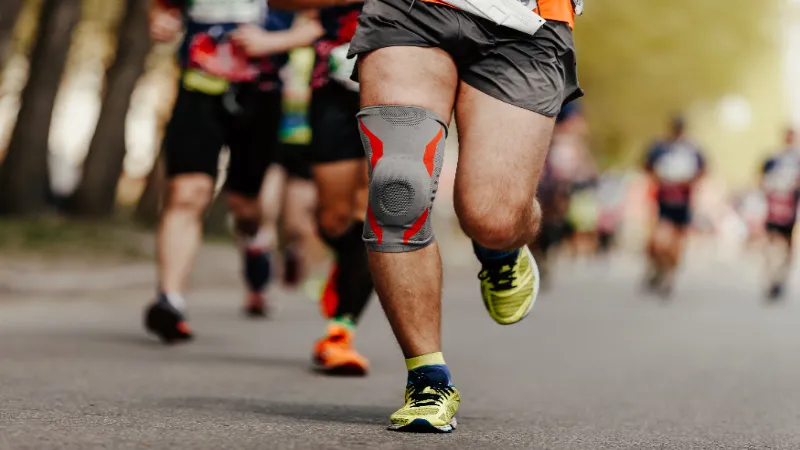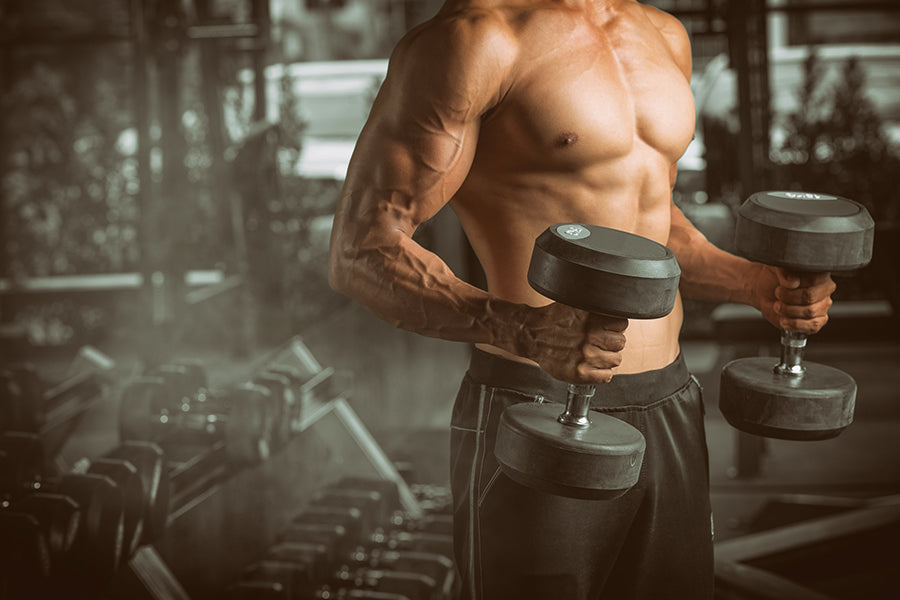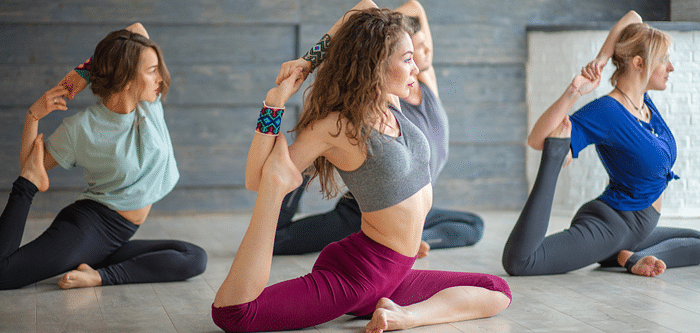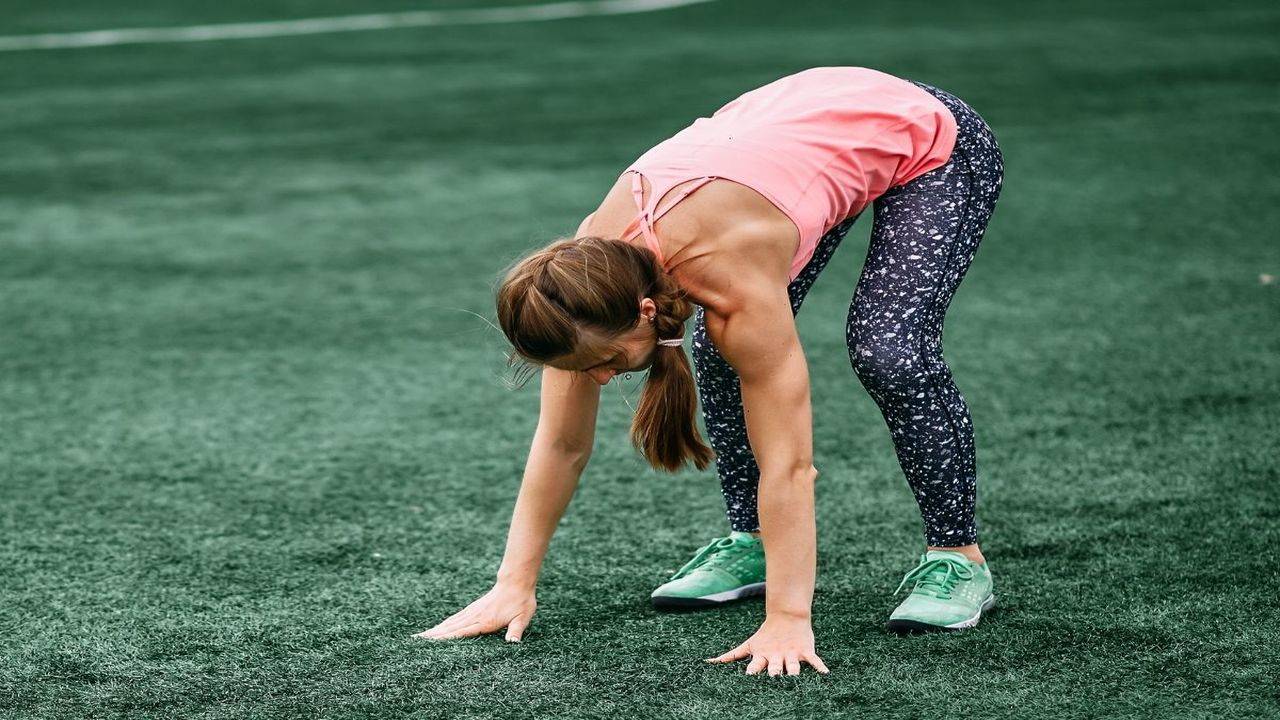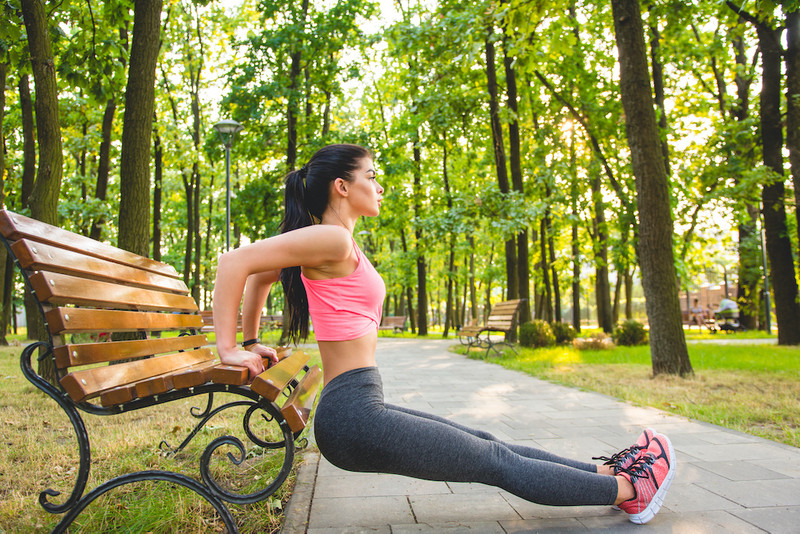Let’s get one thing out of the way—if you run regularly, someone has probably warned you that you’re going to ruin your knees. Maybe it’s your neighbor. Or that friend who swears they “would run too if it wasn’t so bad for the joints.” It’s one of the most common fitness myths out there: running will destroy your knees.
But is there any truth to it? Should you really hang up your running shoes because you’re afraid of knee pain down the road? Or is running actually good for your knees—at least when done smartly?
If you’ve been wondering whether your daily jog is helping or hurting your knees, this one’s for you. We’re breaking down the real story, no scary myths, no robot trainer lecture—just the honest lowdown on how running affects your knees, what causes knee pain for runners, and how to keep your joints happy for the long run.
The Big Question: Does Running Wear Out Your Knees?
It sounds believable, right? Pounding the pavement for miles must wear out your cartilage like an old pair of shoes. But science says it’s not that simple.
Research over the past two decades has found that recreational runners actually have lower rates of knee osteoarthritis (that’s the “wear and tear” arthritis) than people who don’t run at all. Yep—you read that right. Runners often have healthier knees than non-runners.
A massive review in the Journal of Orthopaedic & Sports Physical Therapy looked at thousands of people and found that recreational runners had about half the risk of knee osteoarthritis compared to sedentary folks.
So why does running get such a bad rap? Mostly because when people do get knee pain from running, they blame the running itself—when usually, it’s how they’re running, how much they’re running, or how they’re recovering.
How Running Helps Your Knees
Your knee is a joint, sure—but it’s also surrounded by muscles, ligaments, and cartilage that all need movement to stay healthy. Running done right does a few good things:
Keeps Cartilage Healthy
Cartilage, the tissue that cushions your knee, doesn’t have its own blood supply. It gets nutrients through movement and pressure. When you run, you pump fluid in and out of the cartilage—keeping it nourished and healthy.
Strengthens Muscles & Bones
Running builds strong quads, hamstrings, and glutes—all of which stabilize your knee. Strong muscles mean your joint doesn’t have to absorb every impact alone.
Helps with Weight Control
Extra body weight puts more pressure on knees—about four extra pounds of pressure for every pound you gain. Running helps you stay at a healthy weight, easing that stress on your joints.
So Why Do Runners Get Knee Pain?
Good question. If running itself isn’t the big villain, what’s the real problem? Usually it’s one of these:
1. Doing Too Much, Too Soon
You know the drill—someone decides to “get in shape” and goes from couch to five miles overnight. The knees (and the rest of the body) aren’t ready for that sudden pounding. Joints, muscles, and connective tissues need time to adapt.
2. Weak Supporting Muscles
If your glutes or quads are weak, your knees take the brunt of the load. Weak hips can also mess with your form, causing your knees to cave inward with each stride—hello, pain.
3. Bad Running Form
Landing too hard on your heels, overstriding, or running hunched over can all lead to extra stress on the knees. Good form spreads the impact through your whole leg.
4. The Wrong Shoes
Worn-out or poorly fitted shoes can mess up your gait and lead to overuse injuries. Sometimes a small shoe tweak can fix a big knee pain problem.
Common Knee Problems Runners Face
Here’s what might pop up if your knees aren’t happy:
- Runner’s Knee (Patellofemoral Pain Syndrome): A dull pain around or behind the kneecap. Often from overuse, weak quads, or misalignment.
- IT Band Syndrome: Pain on the outside of the knee caused by a tight iliotibial band rubbing against the knee joint.
- Tendonitis: Inflammation of the tendons around the knee—usually from too much running too fast.
Most of these aren’t permanent damage. They’re overuse injuries that respond well to rest, strengthening, and better running habits.
How to Keep Your Knees Happy
Okay, so you love running and you want to keep your knees strong. Here’s what works in the real world:
1. Strengthen the Muscles Around Your Knees
Running is great, but your body needs backup. Add these moves to your weekly routine:
- Squats
- Lunges
- Glute bridges
- Clamshells (great for hip stability)
- Calf raises
These build strong quads, hamstrings, glutes, and hips—your knee’s best friends.
2. Increase Mileage Gradually
Follow the “10% Rule”: don’t bump up your weekly mileage by more than 10% at a time. Your body needs time to adjust.
3. Check Your Shoes
Replace your running shoes every 300–500 miles, depending on your running style and the surface you run on. Visit a running store once to get fitted properly—it’s worth it.
4. Mix Up Surfaces
Running only on concrete is tough on your joints. Mix in softer surfaces like trails, grass, or a treadmill every now and then.
5. Listen to Pain
Soreness is normal. Sharp pain is not. If your knee hurts every time you run, don’t push through it—rest, cross-train, or see a physio.
6. Cross-Train
Add cycling, swimming, or strength training to balance your routine and reduce repetitive stress.
Should You Wear a Knee Brace?
Some runners swear by knee sleeves or braces. They can give light support and help you feel more stable, but they won’t fix bad form or weak muscles. Think of them as short-term helpers, not long-term solutions.
When to See a Doctor
If your knee pain is sharp, swelling won’t go down, or it hurts even when you’re not running—it’s time to get it checked. Catching an injury early is always better than pushing until you can’t walk.
The Bottom Line: Running Doesn’t Ruin Knees—Bad Running Does
If you love running, keep running. Done smartly, it keeps your knees healthy and strong. It’s overdoing it, ignoring pain, and skipping strength work that causes problems.
So lace up. Listen to your body. Strengthen your legs and hips. And when your neighbor says, “Isn’t running bad for your knees?” you’ll know better.
